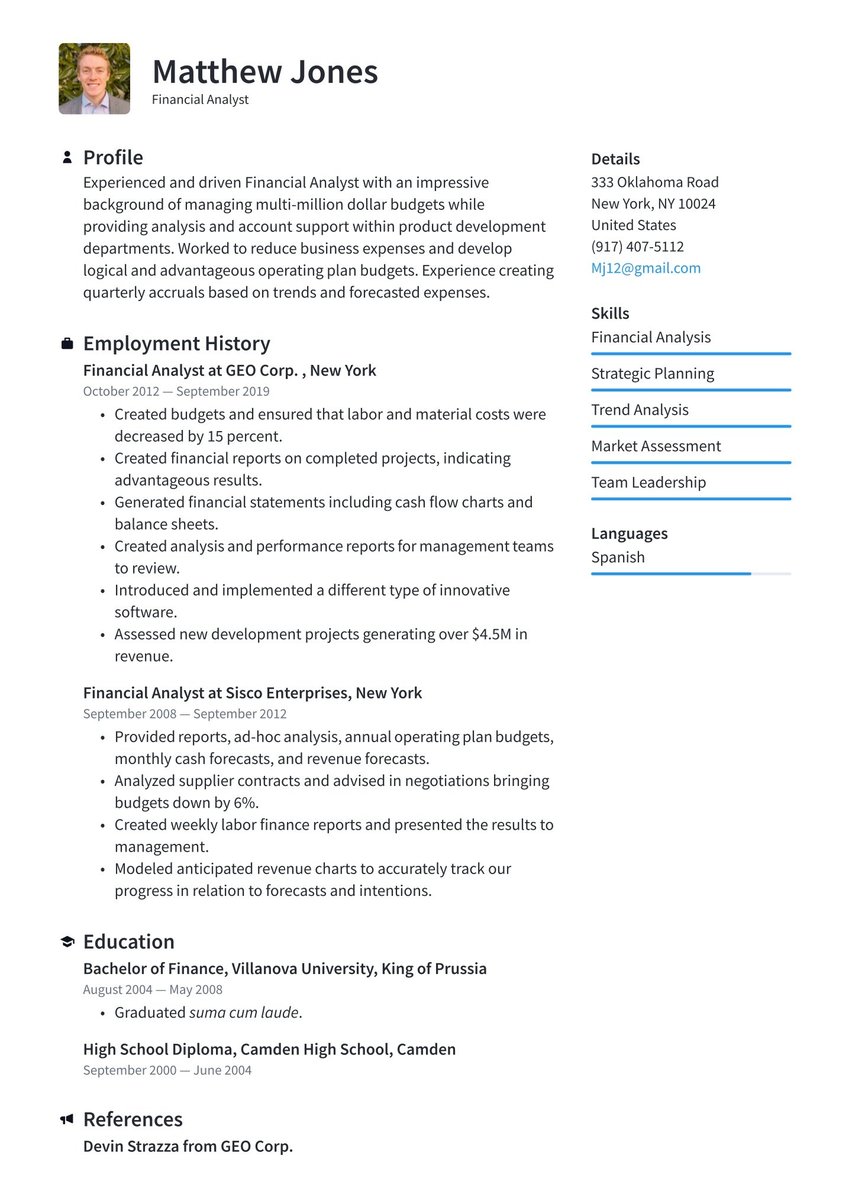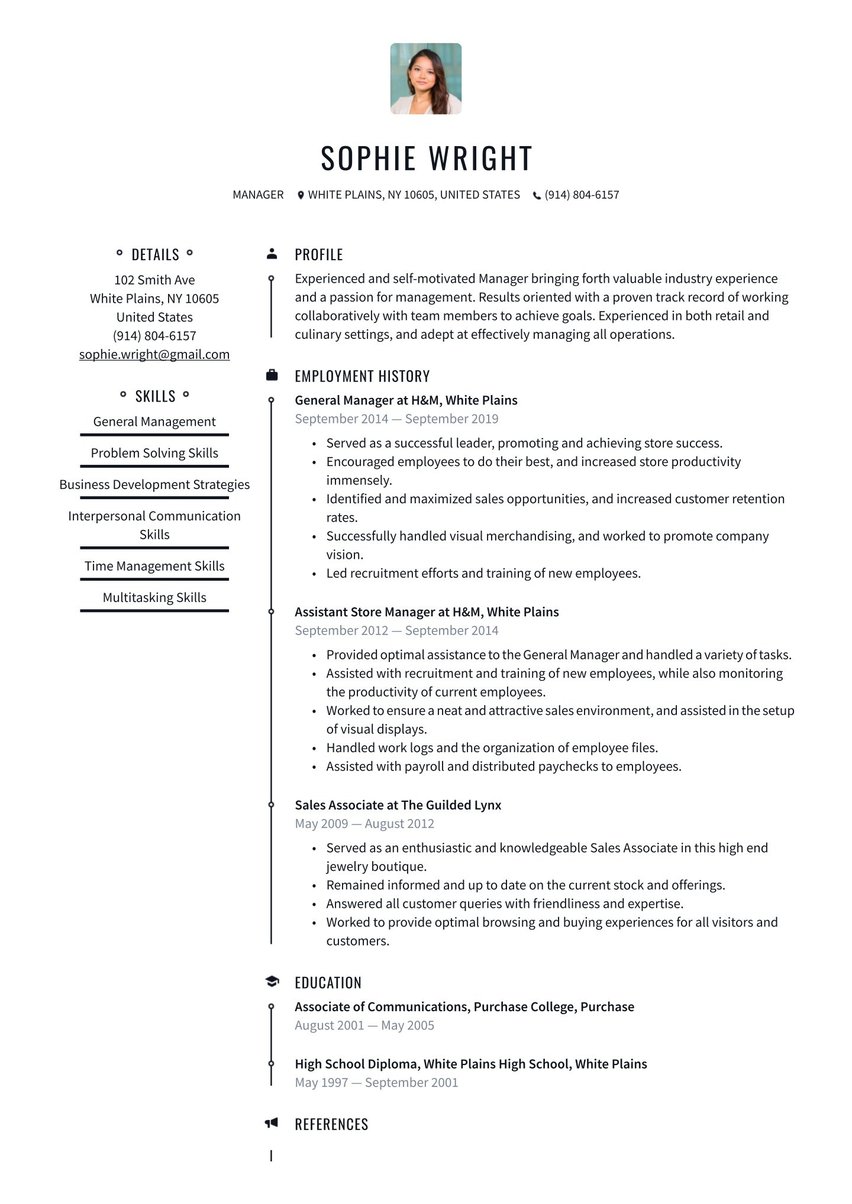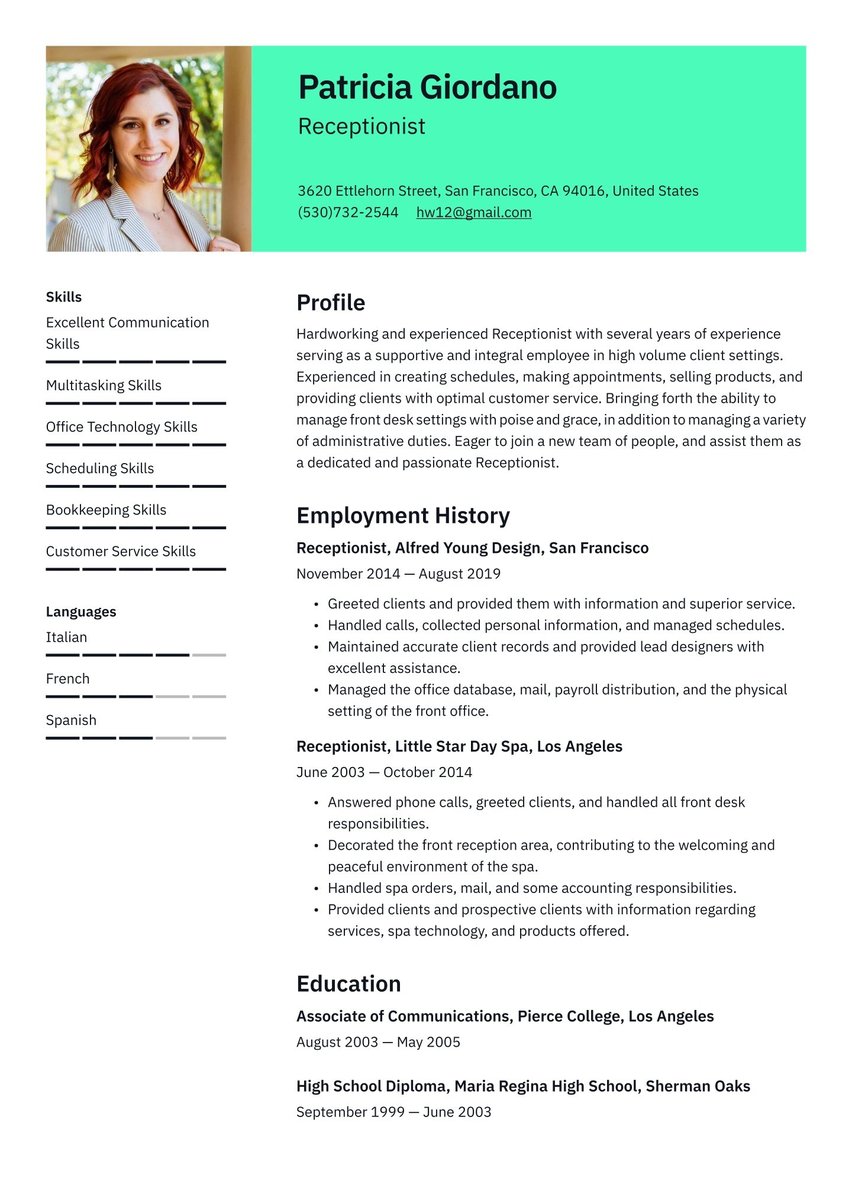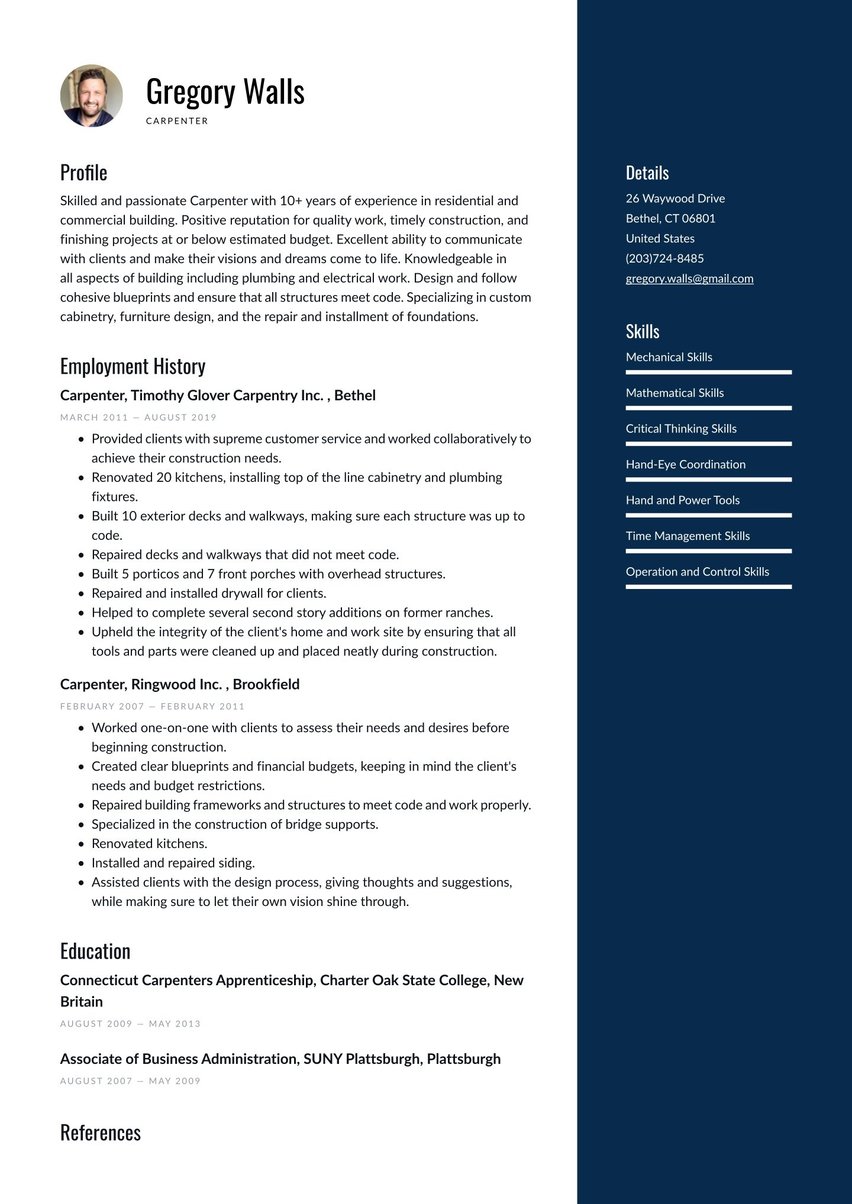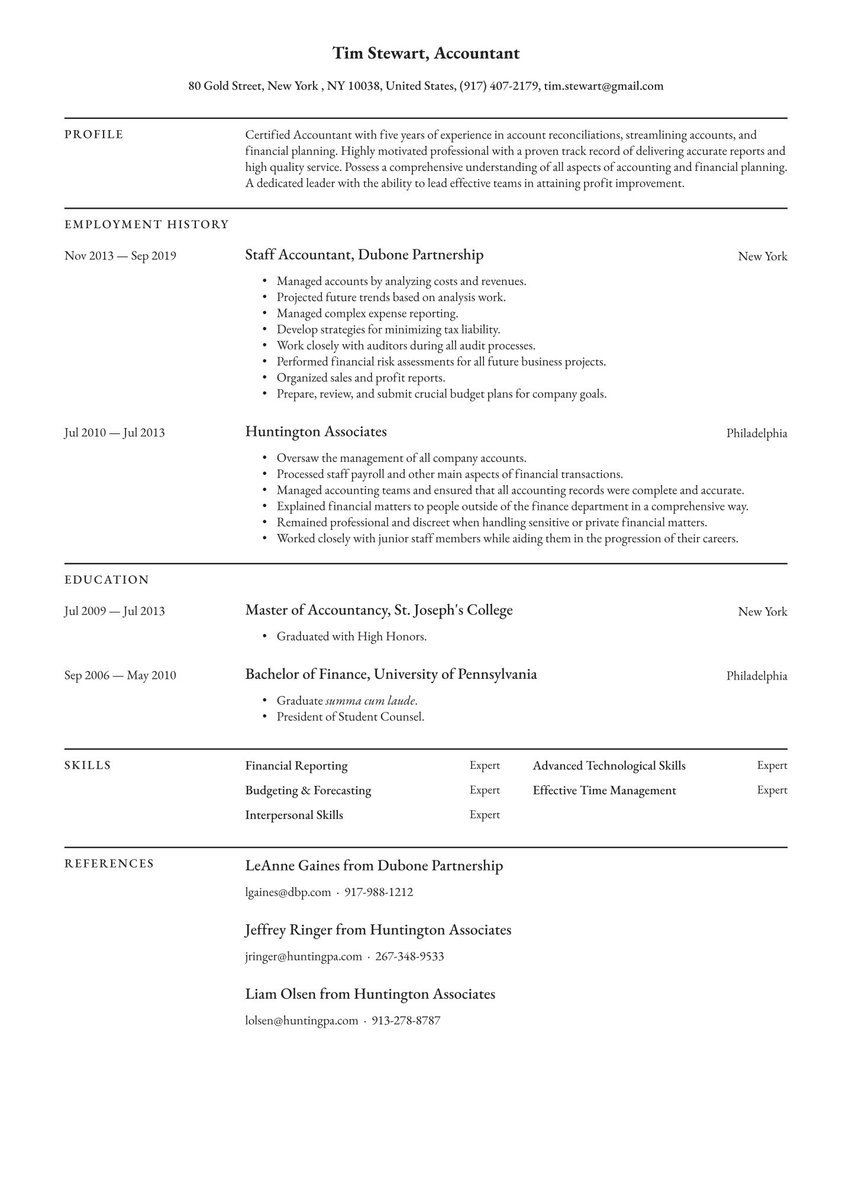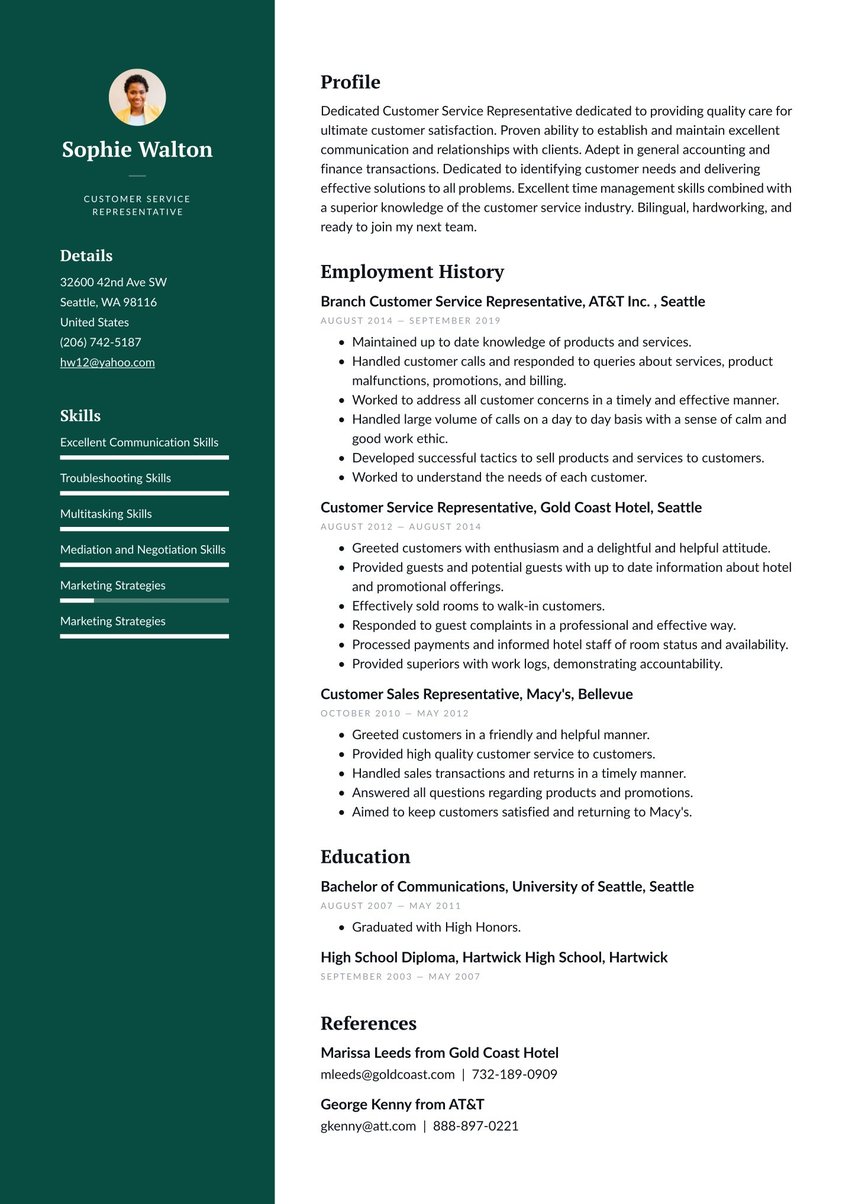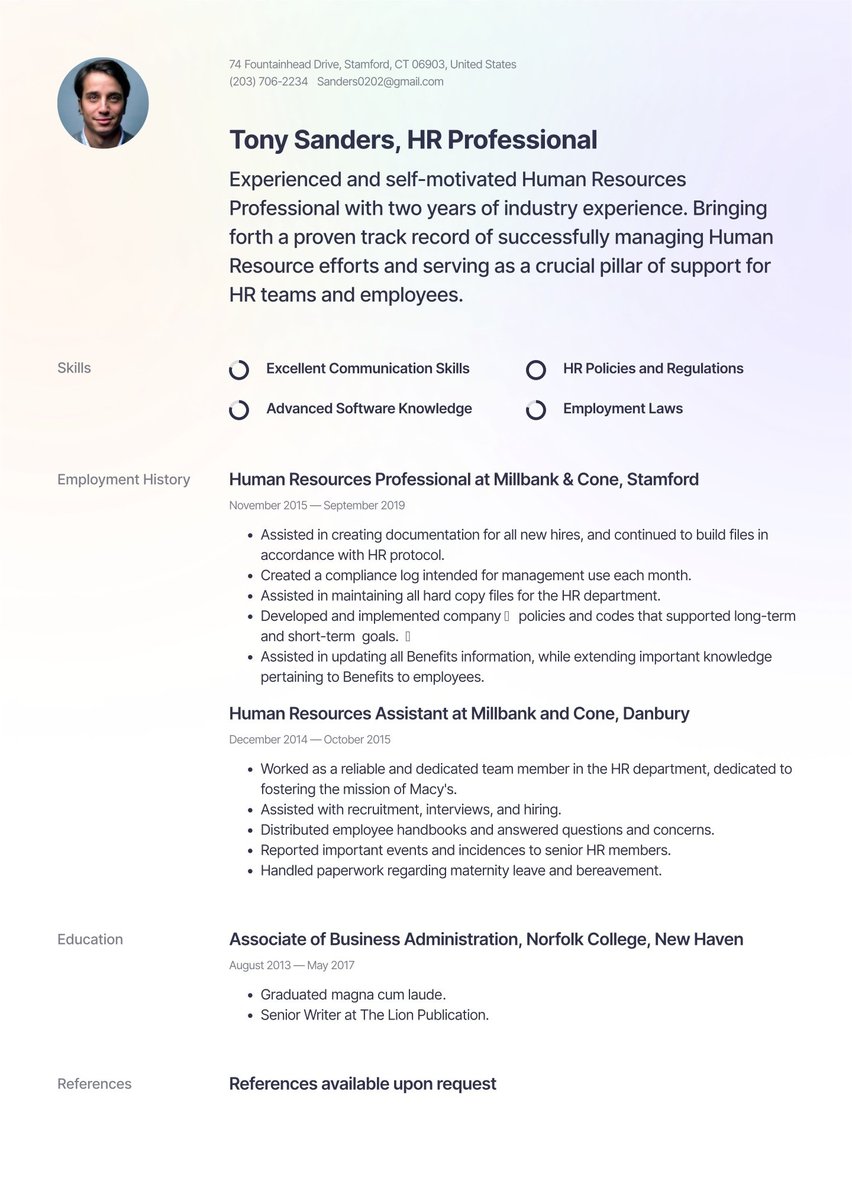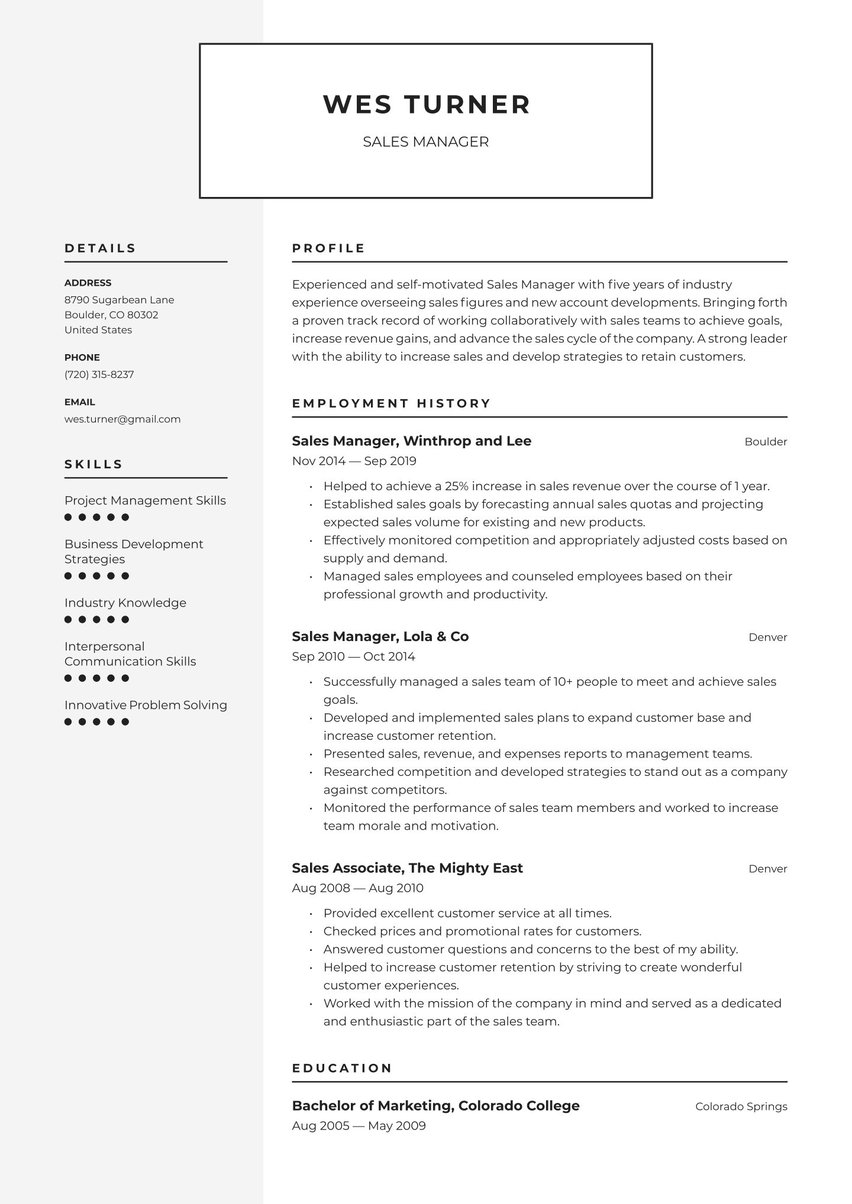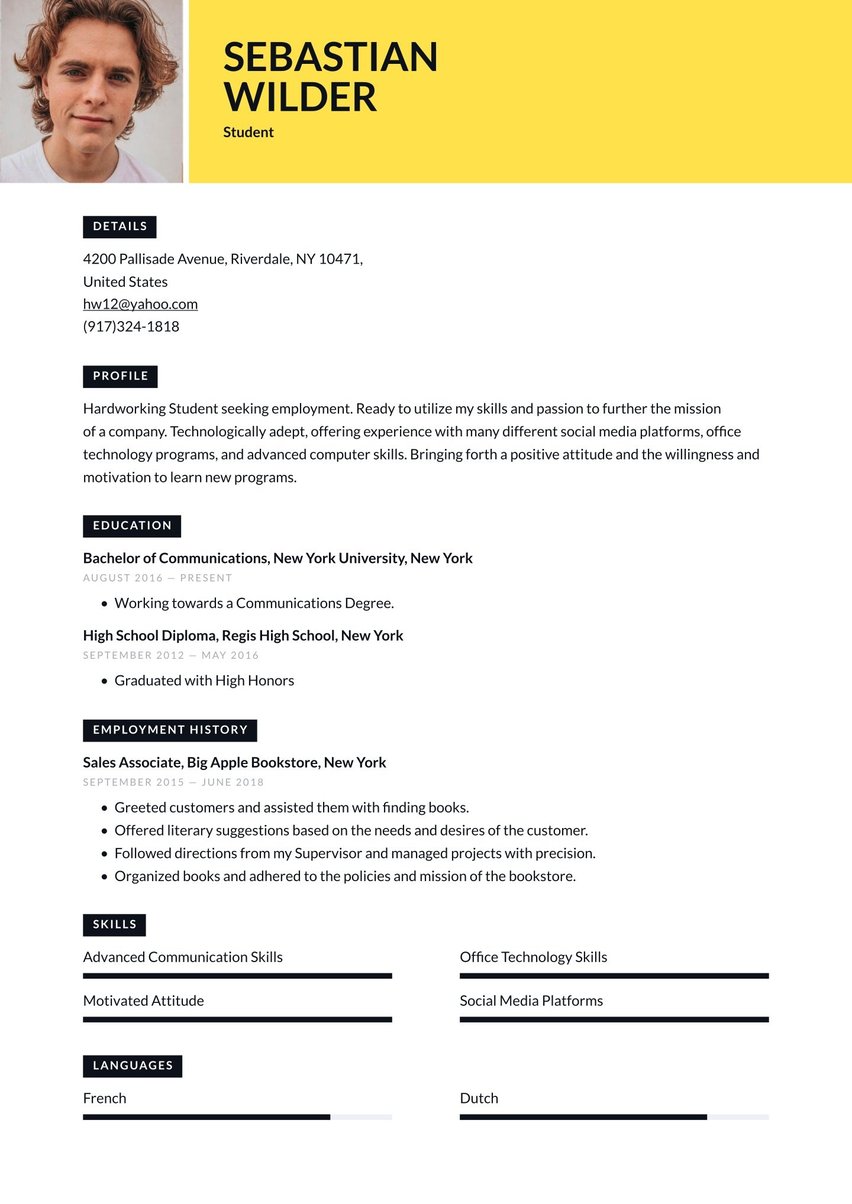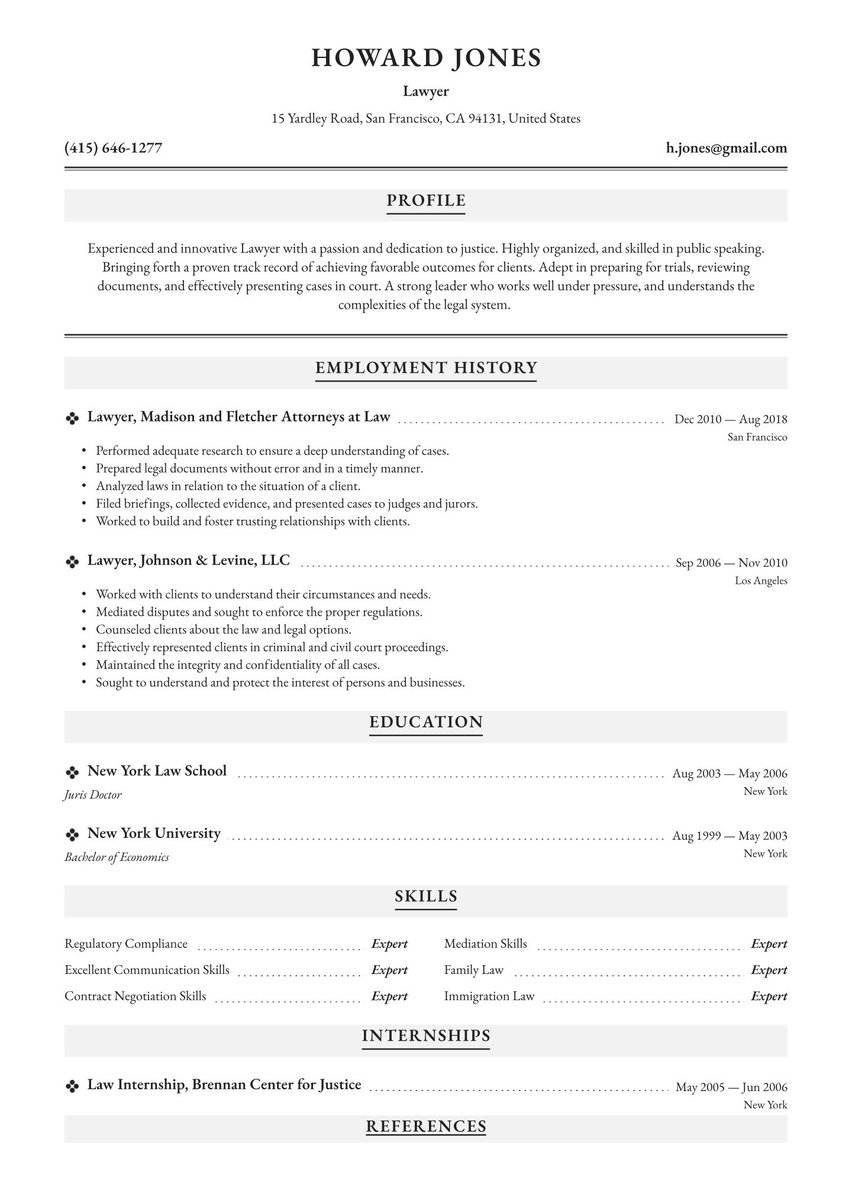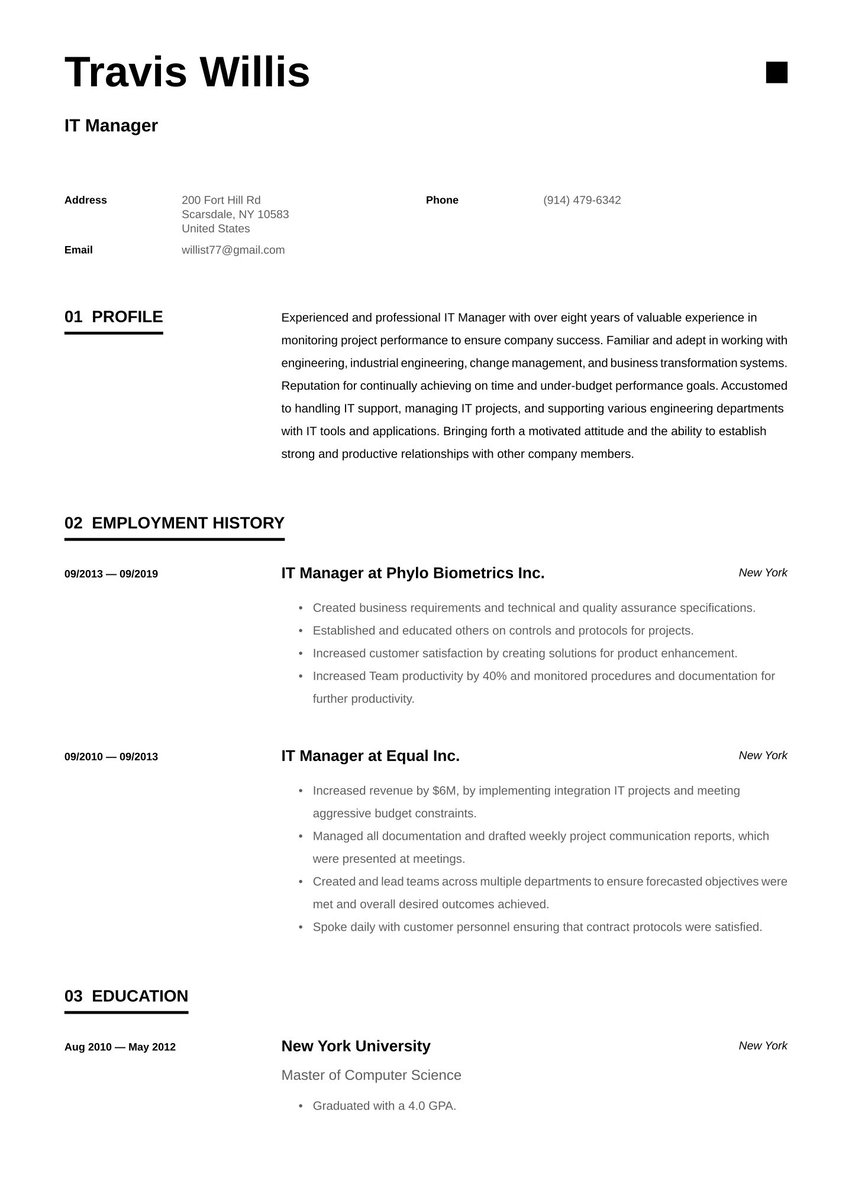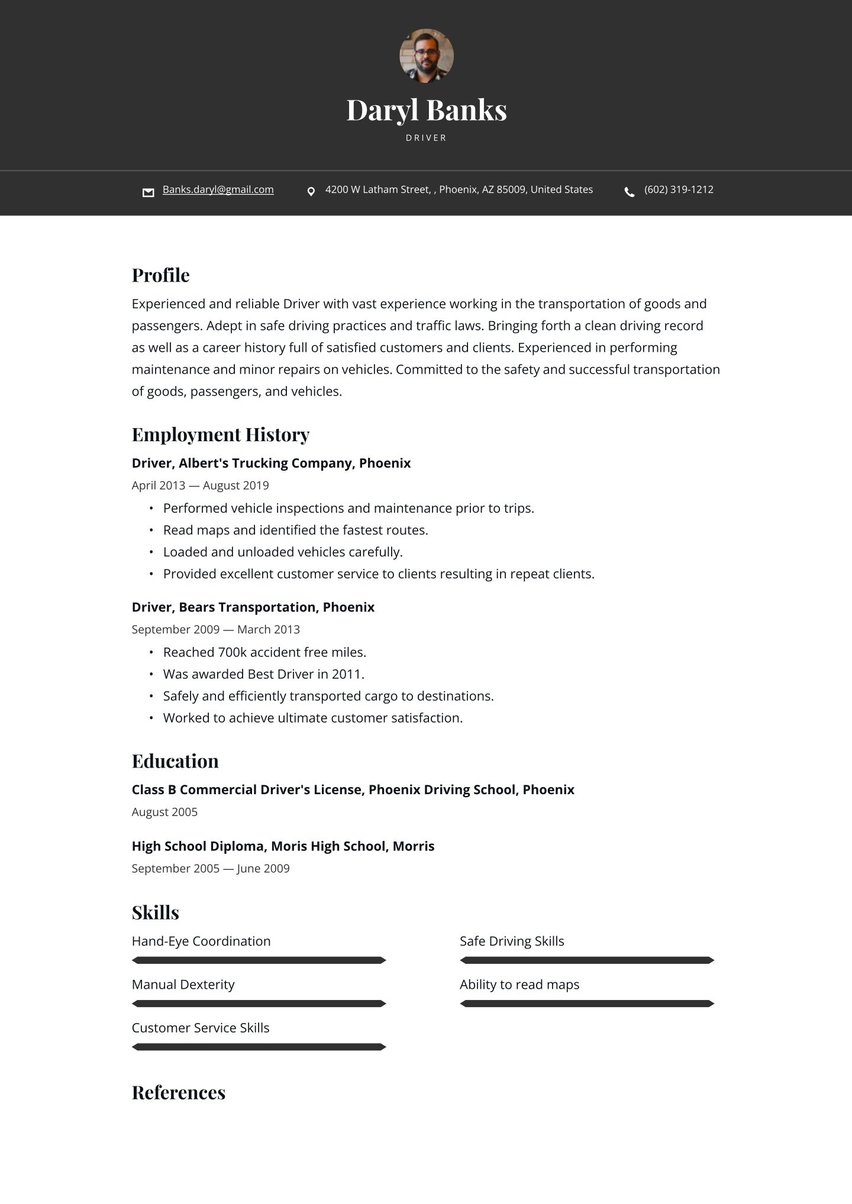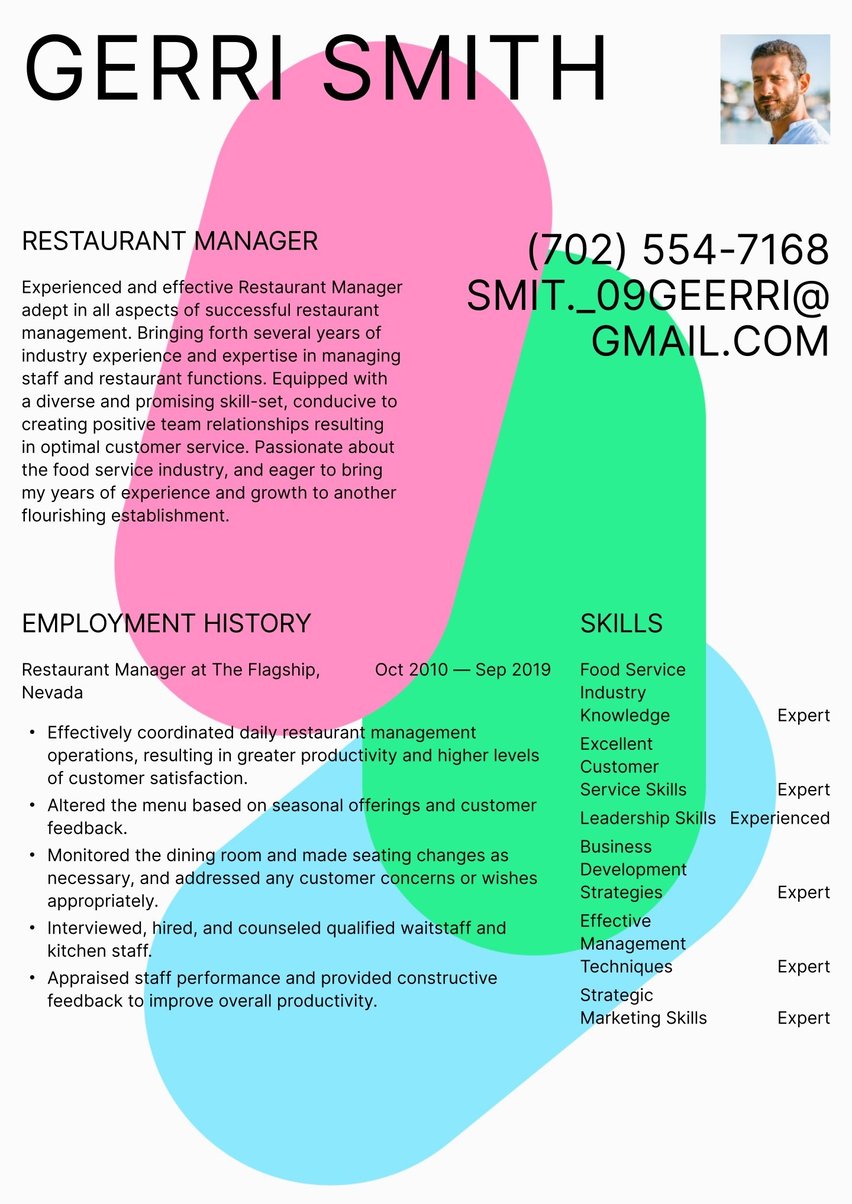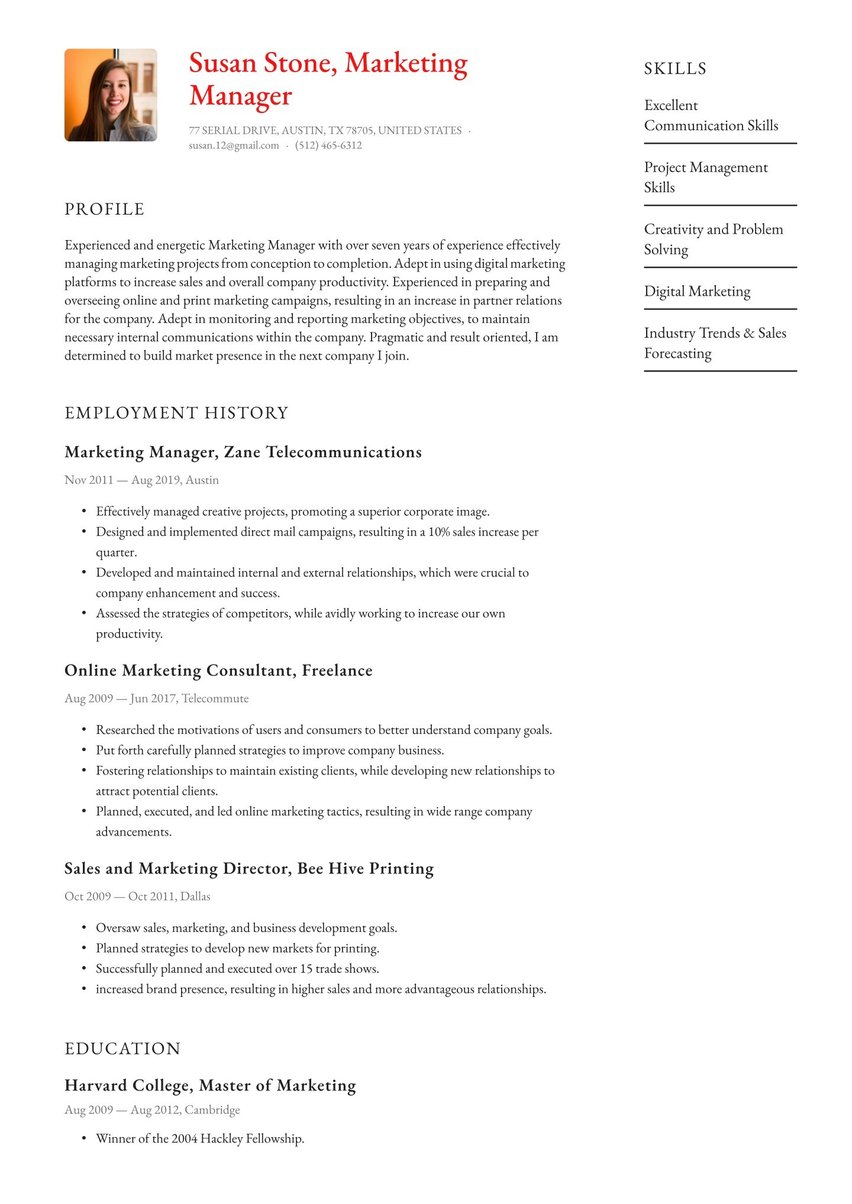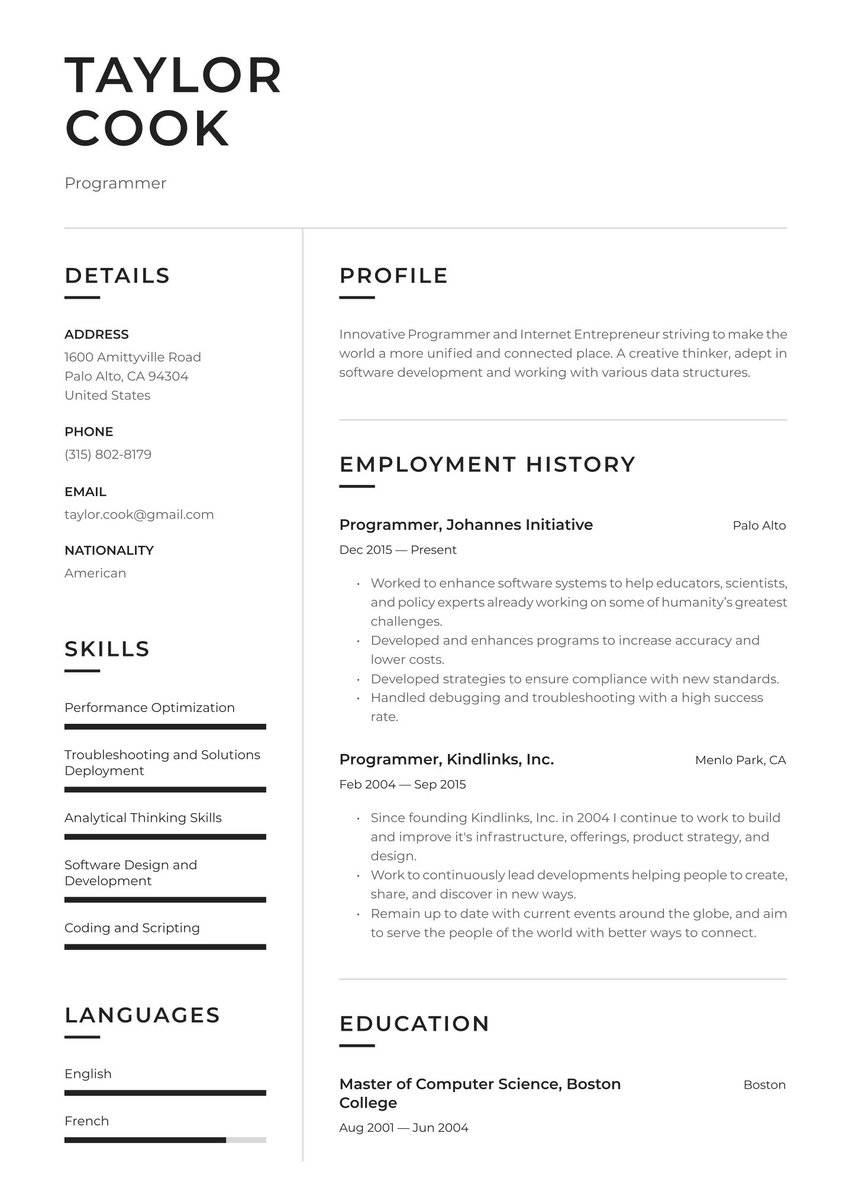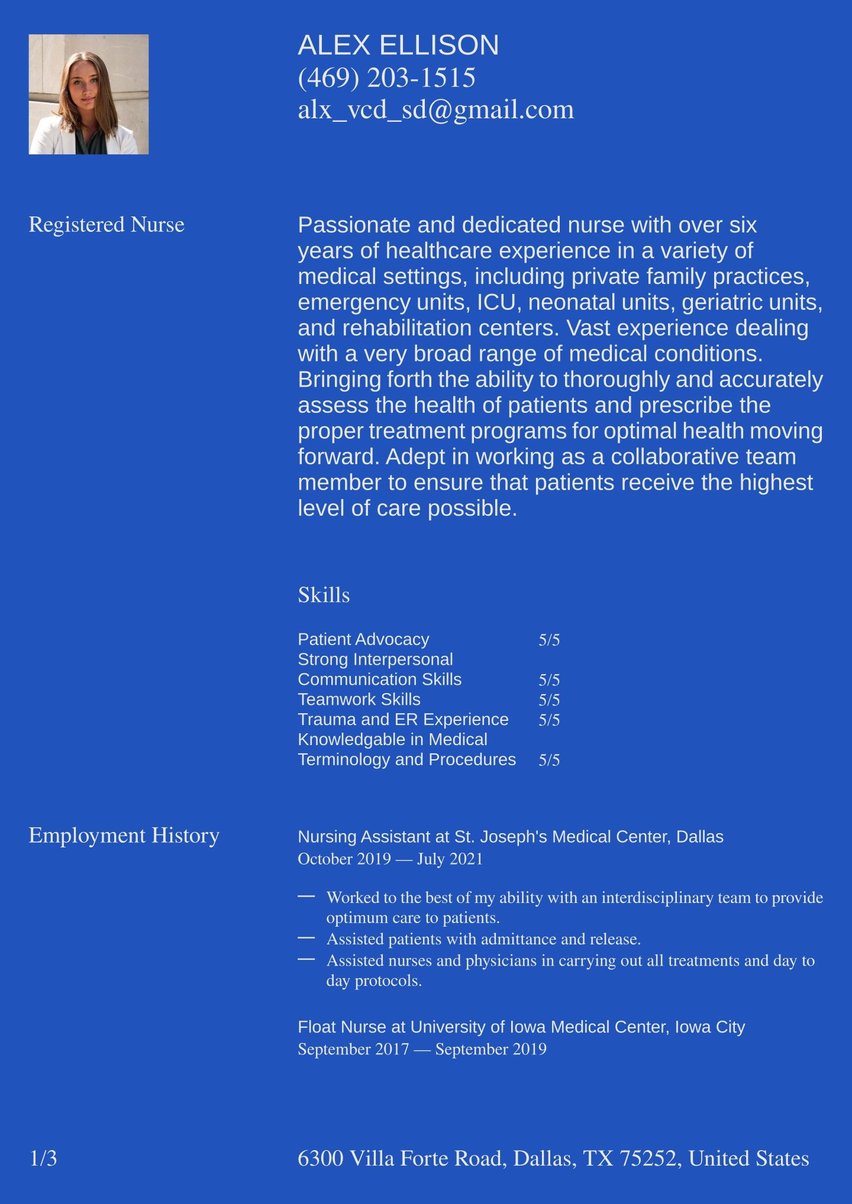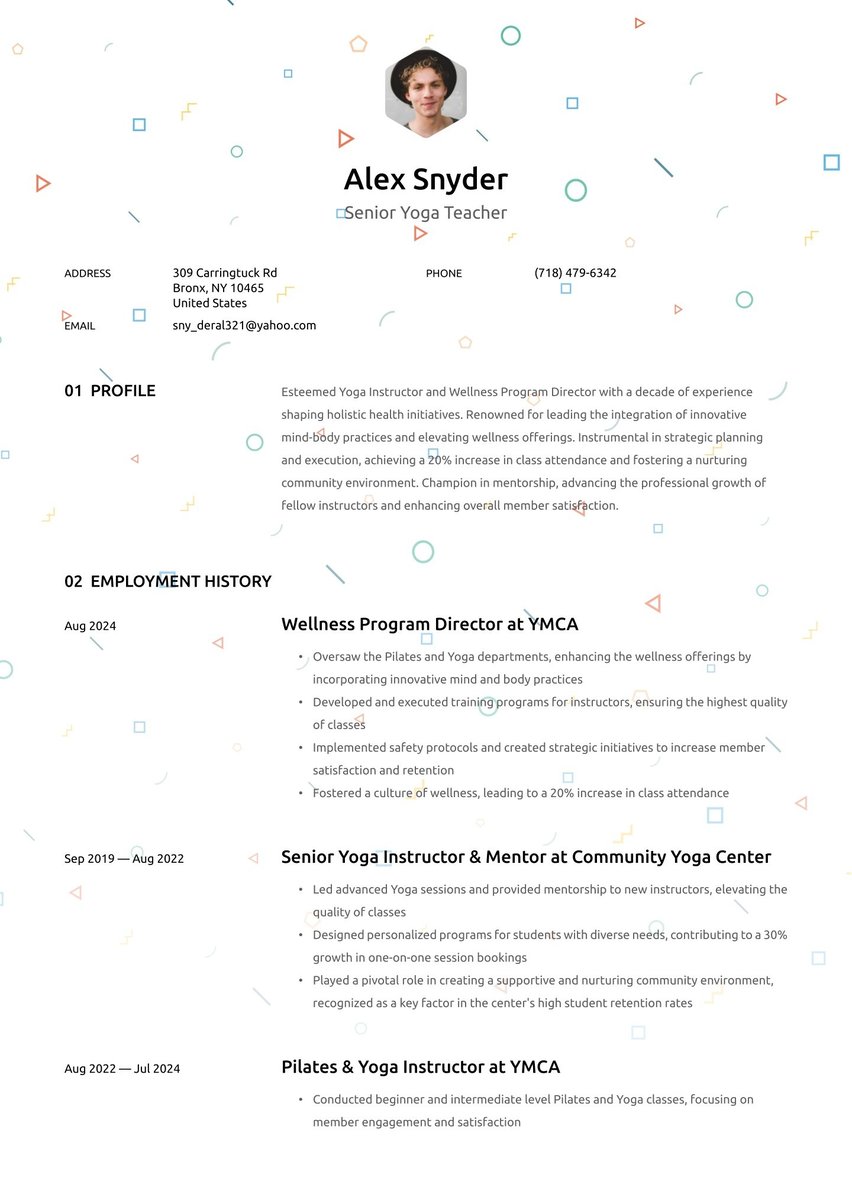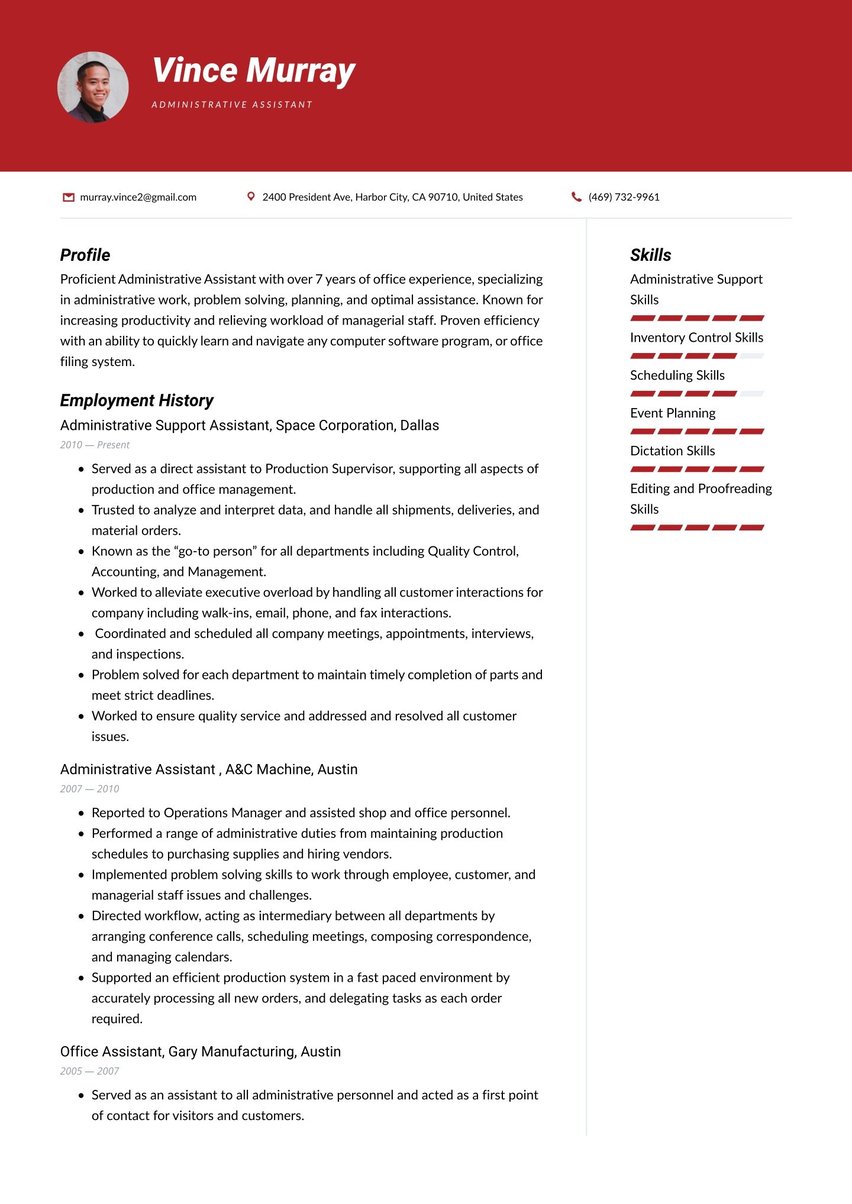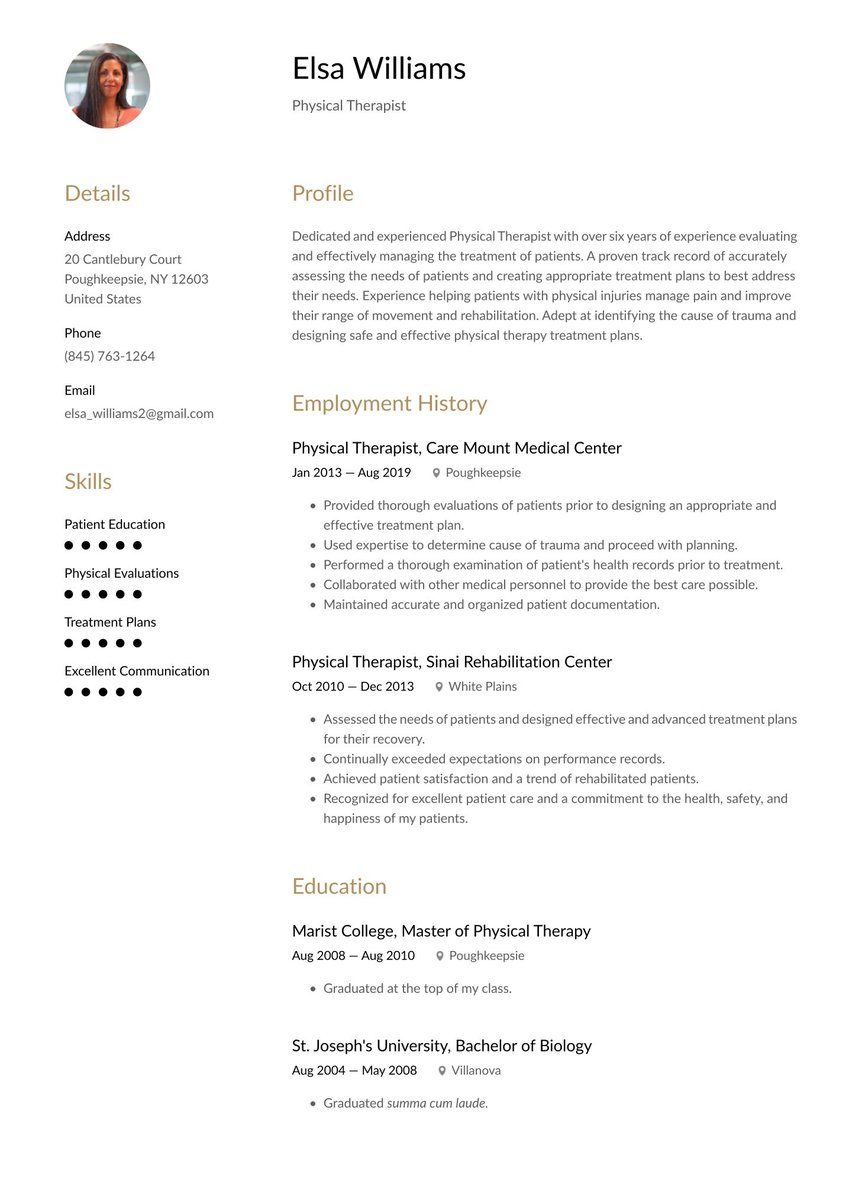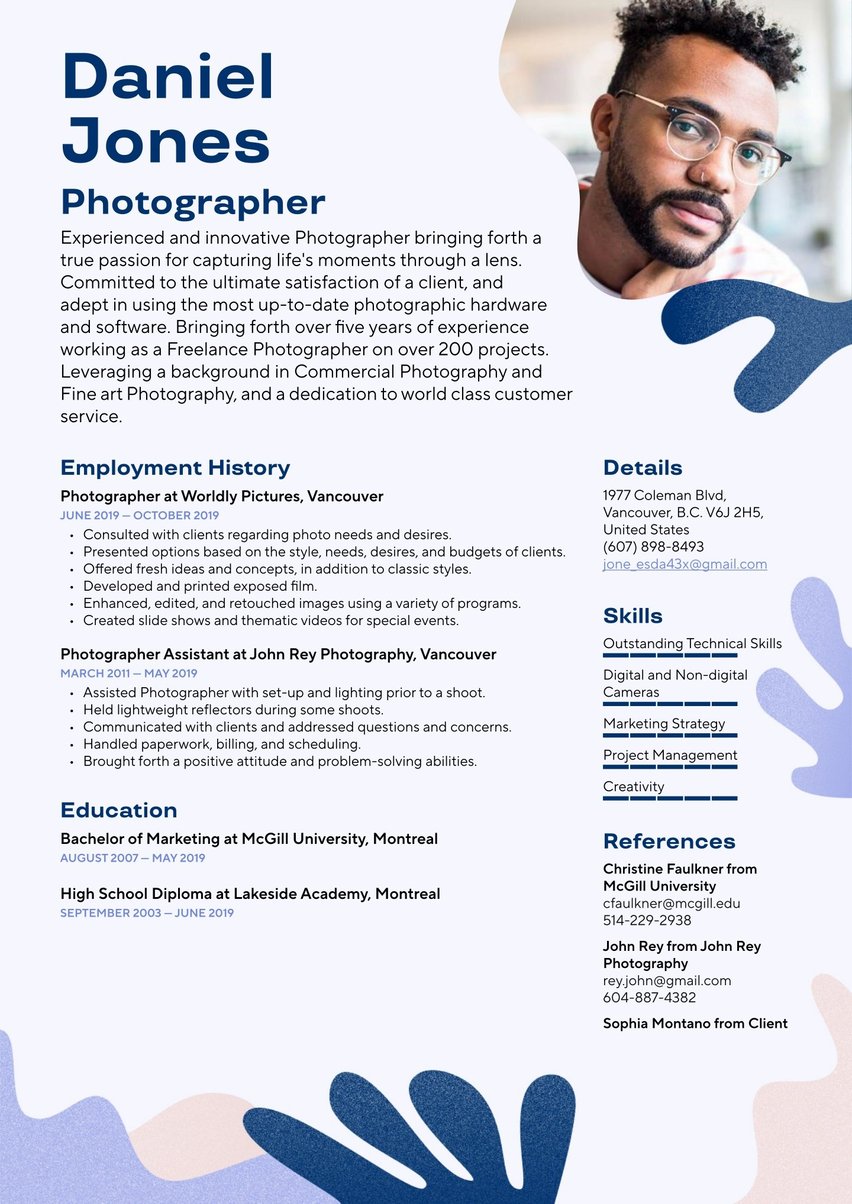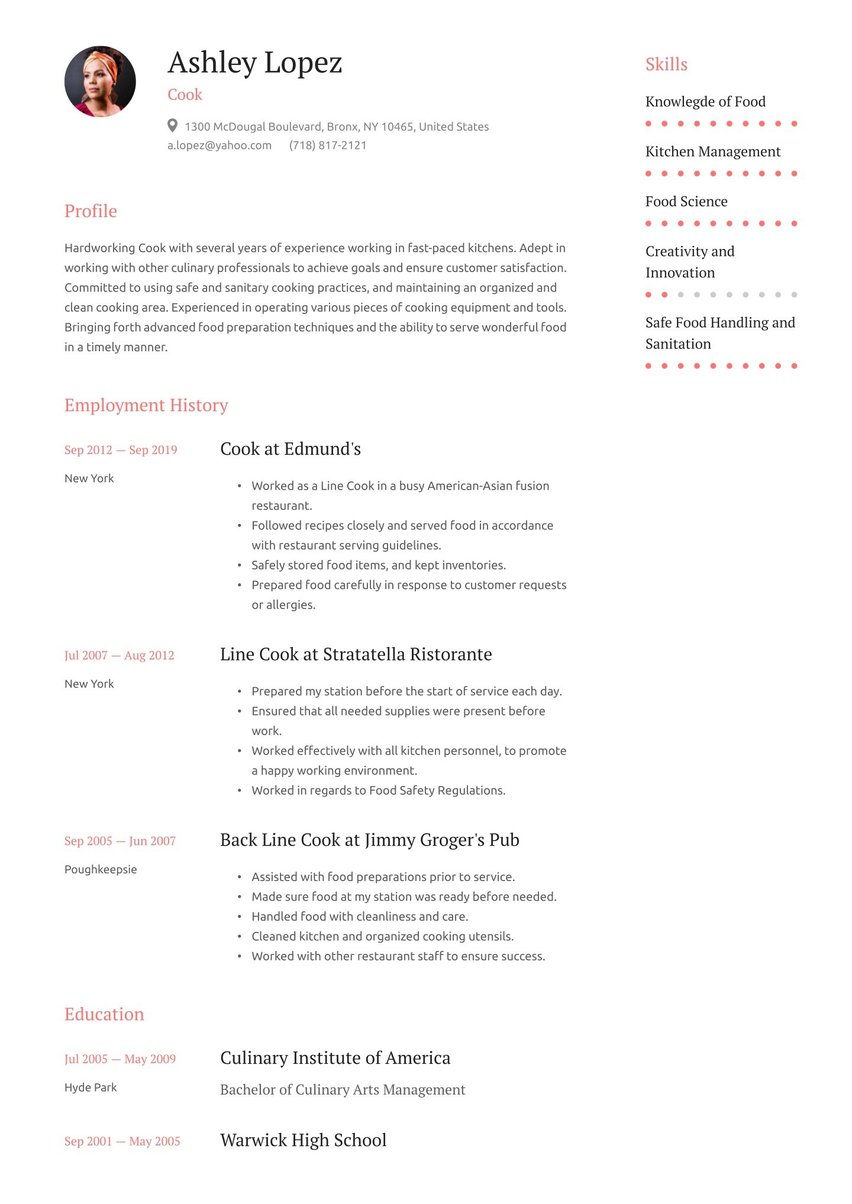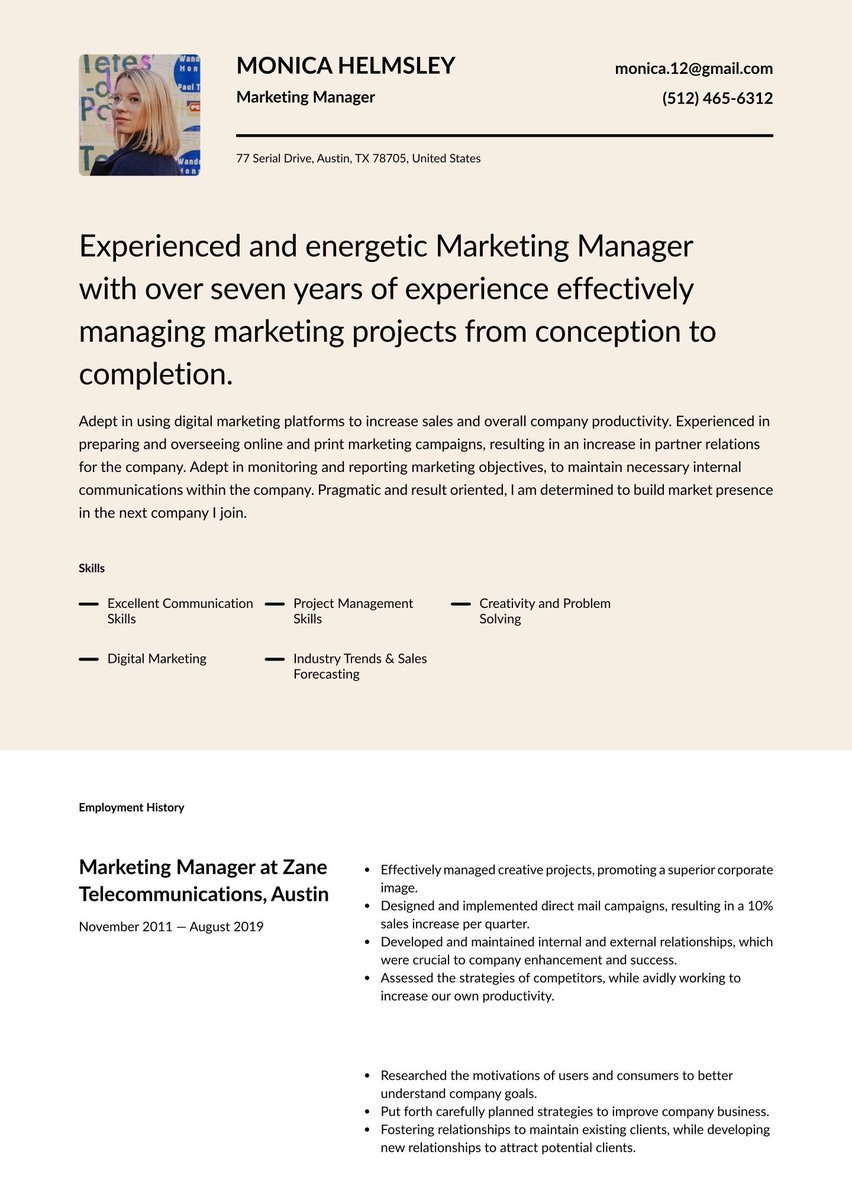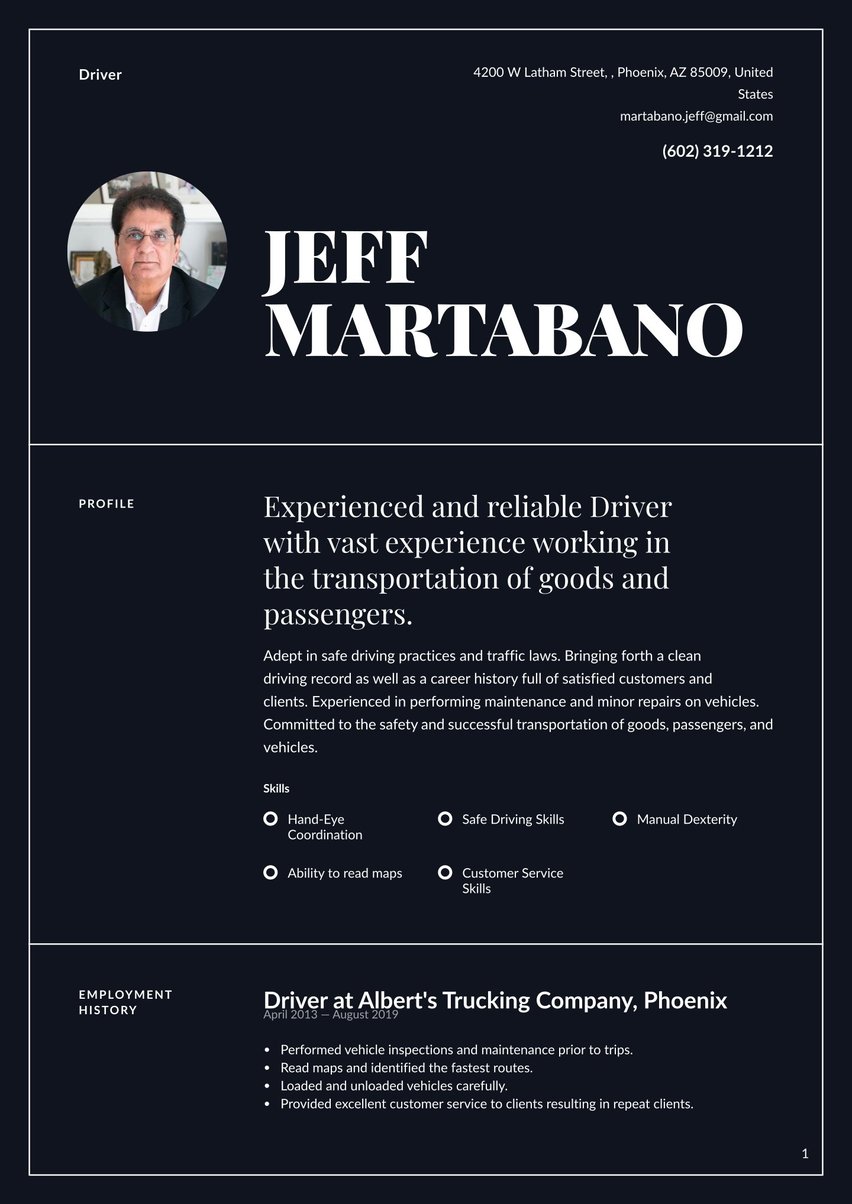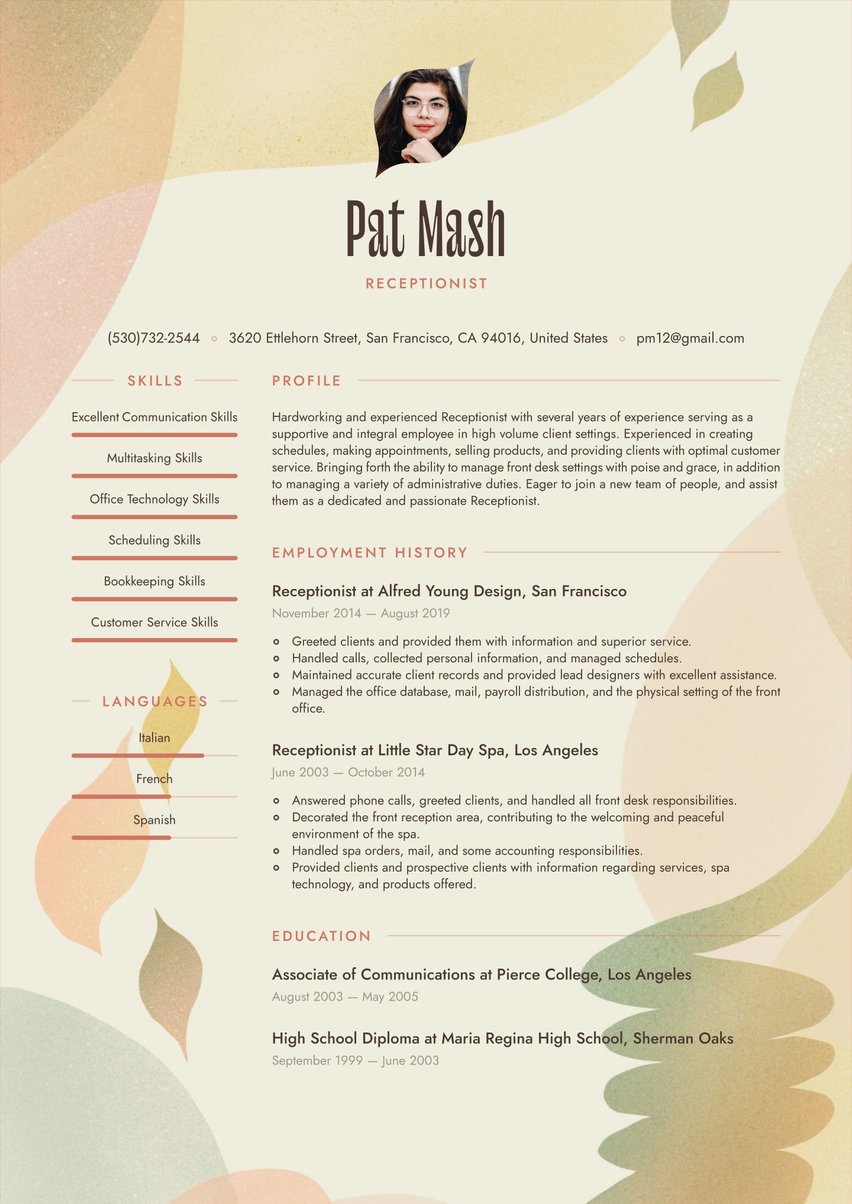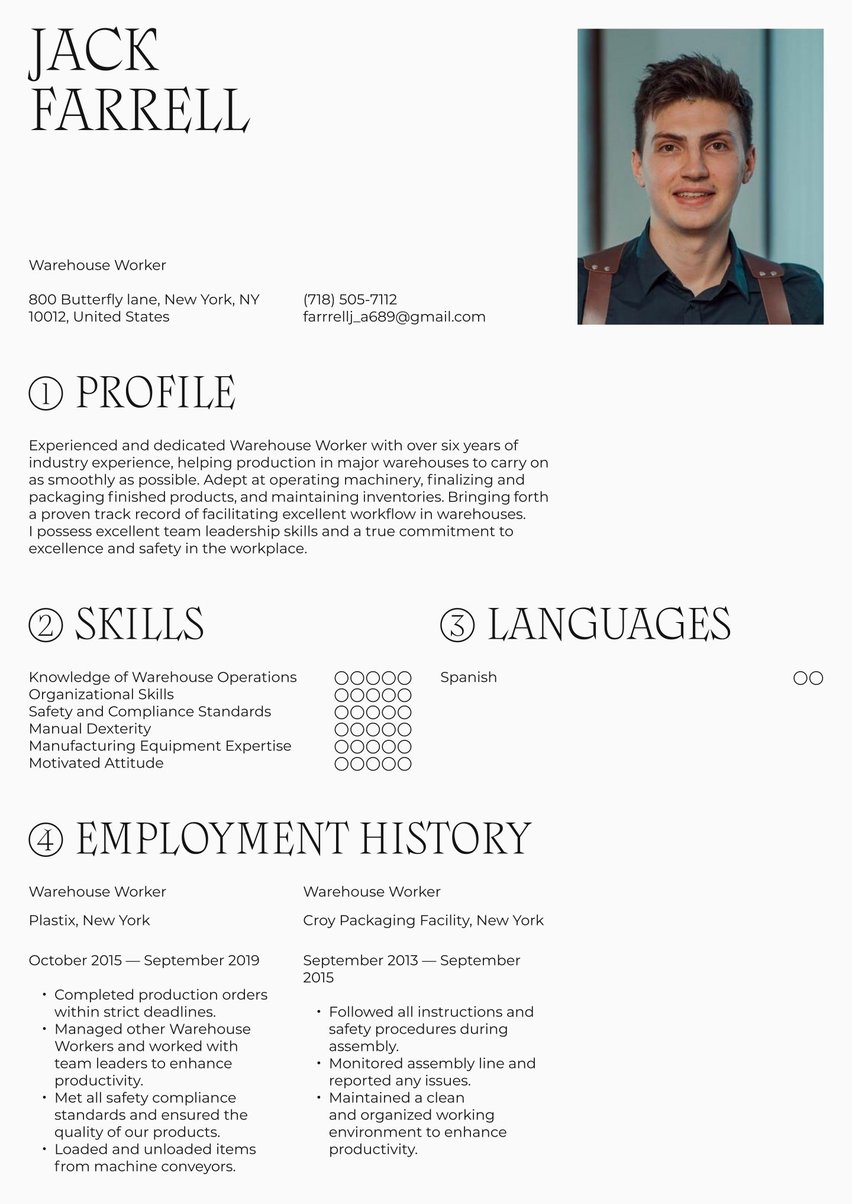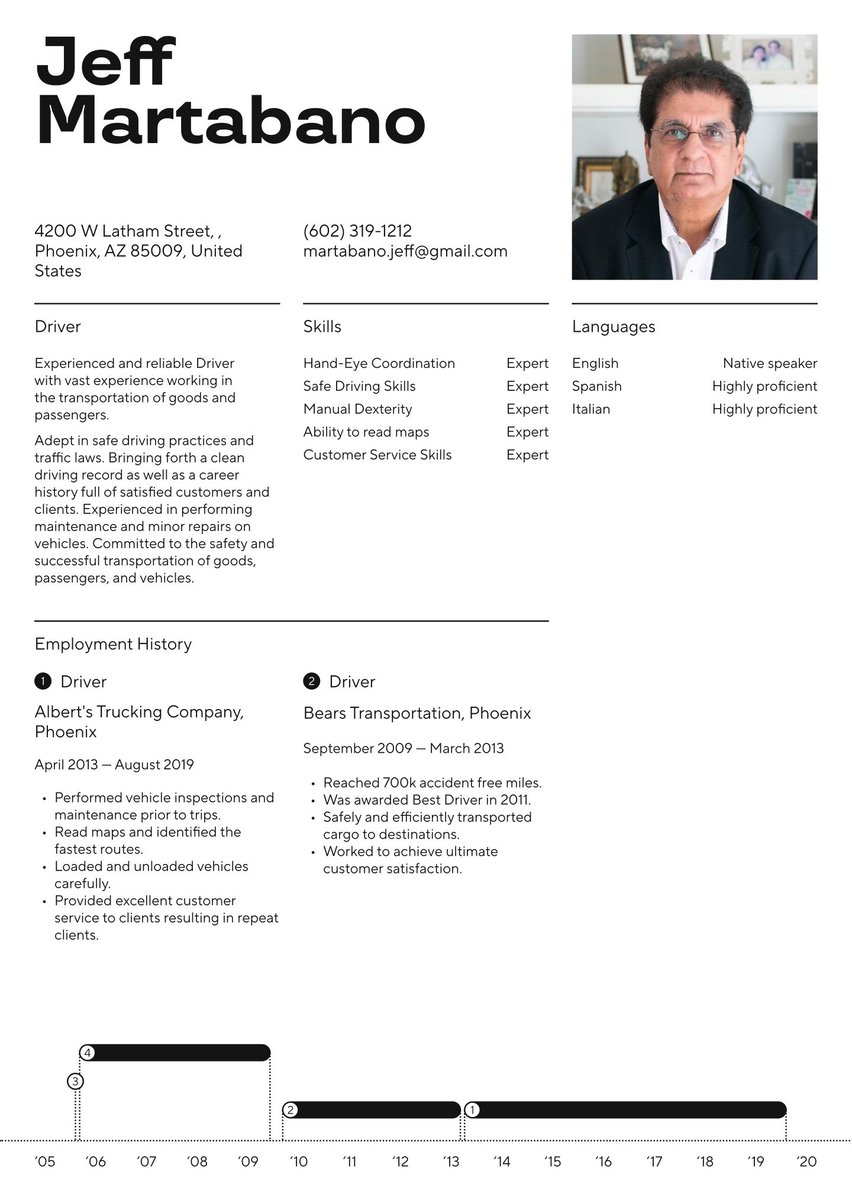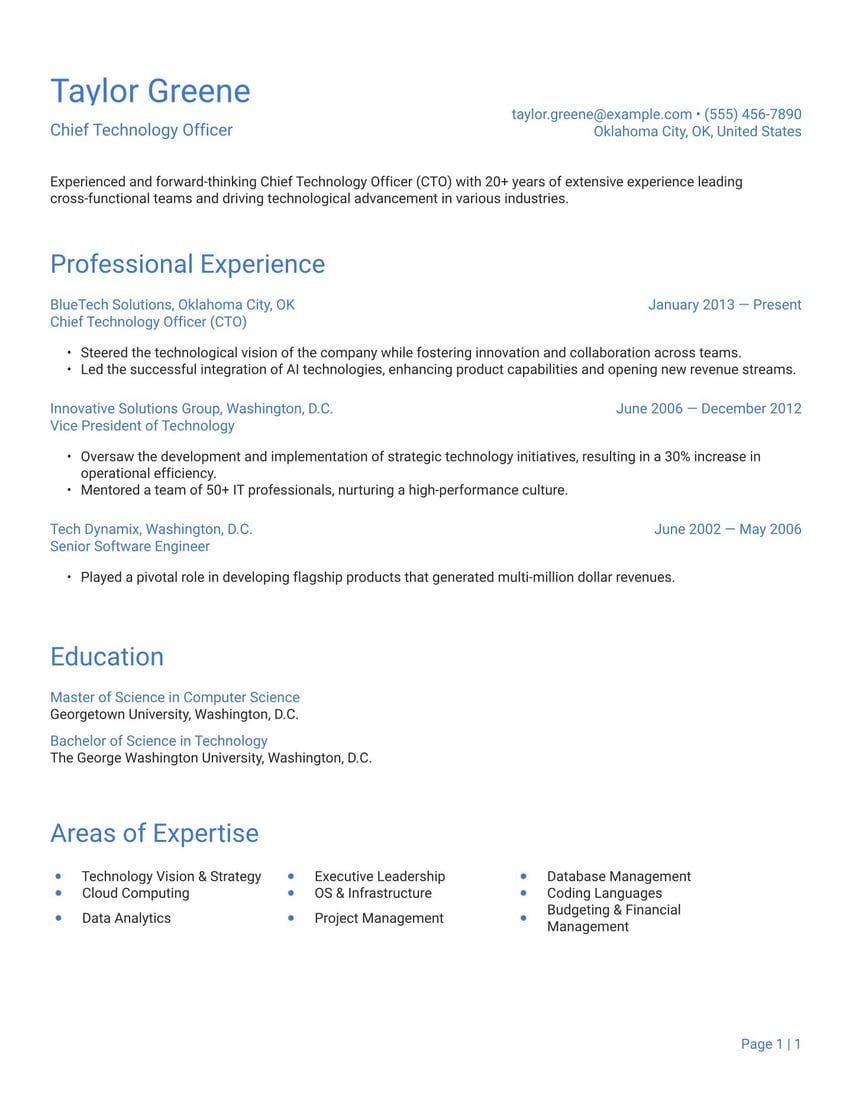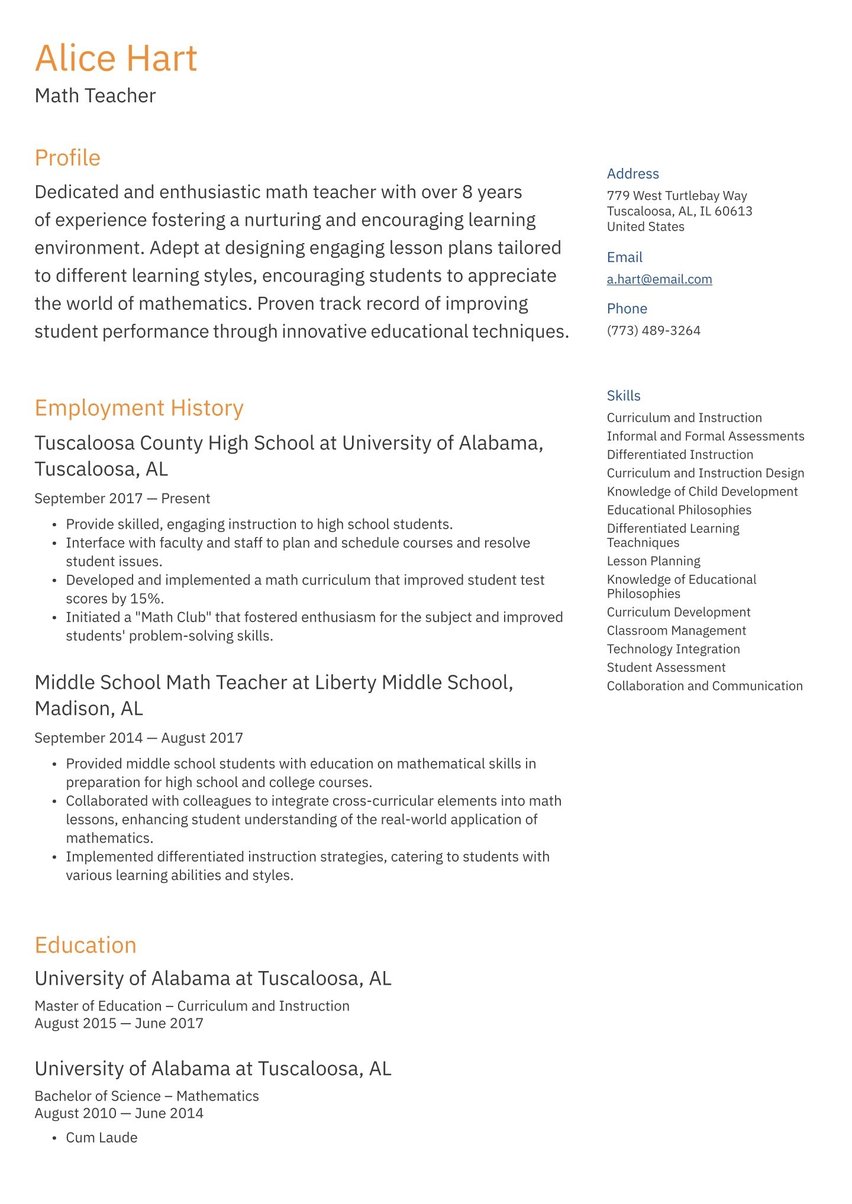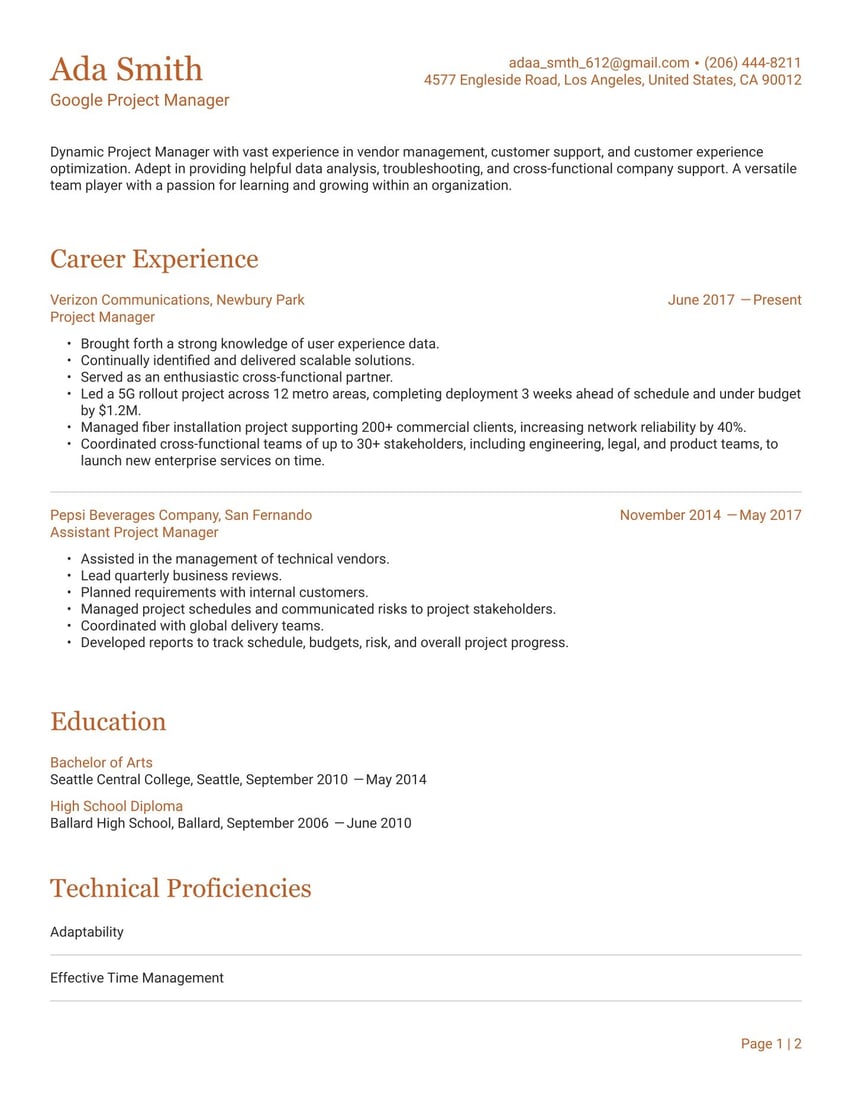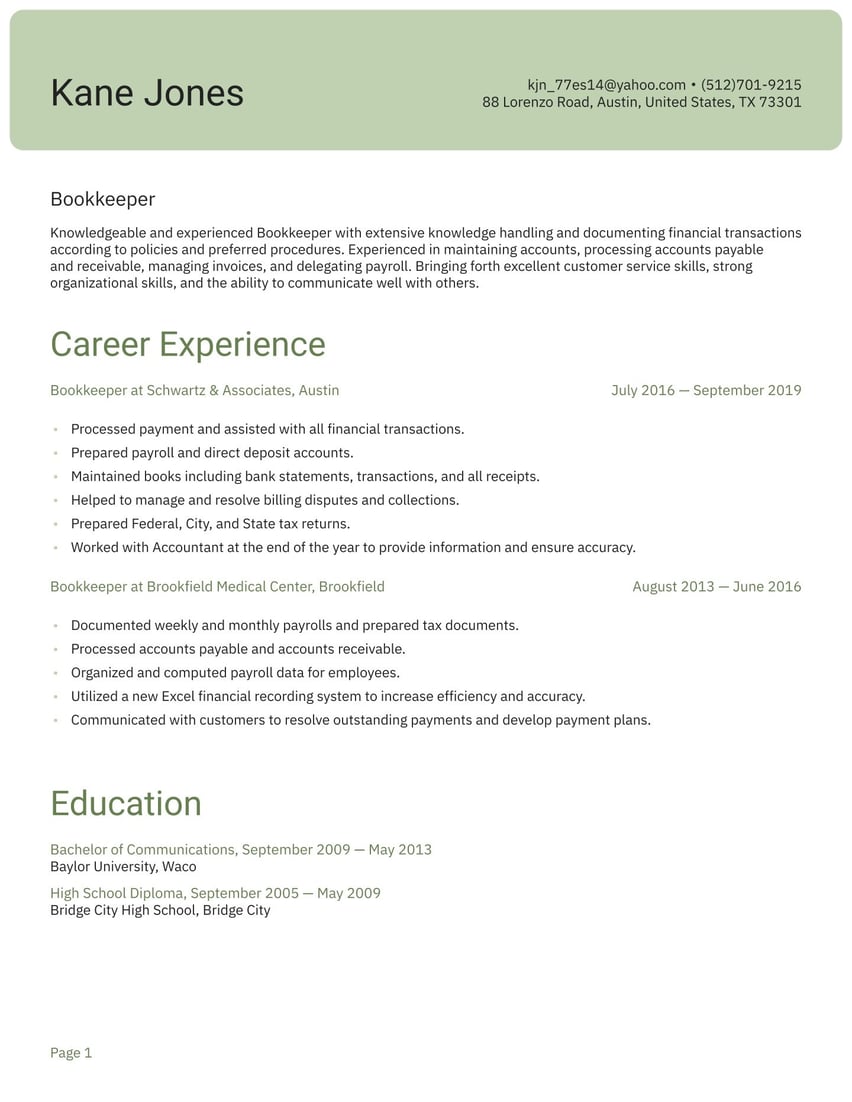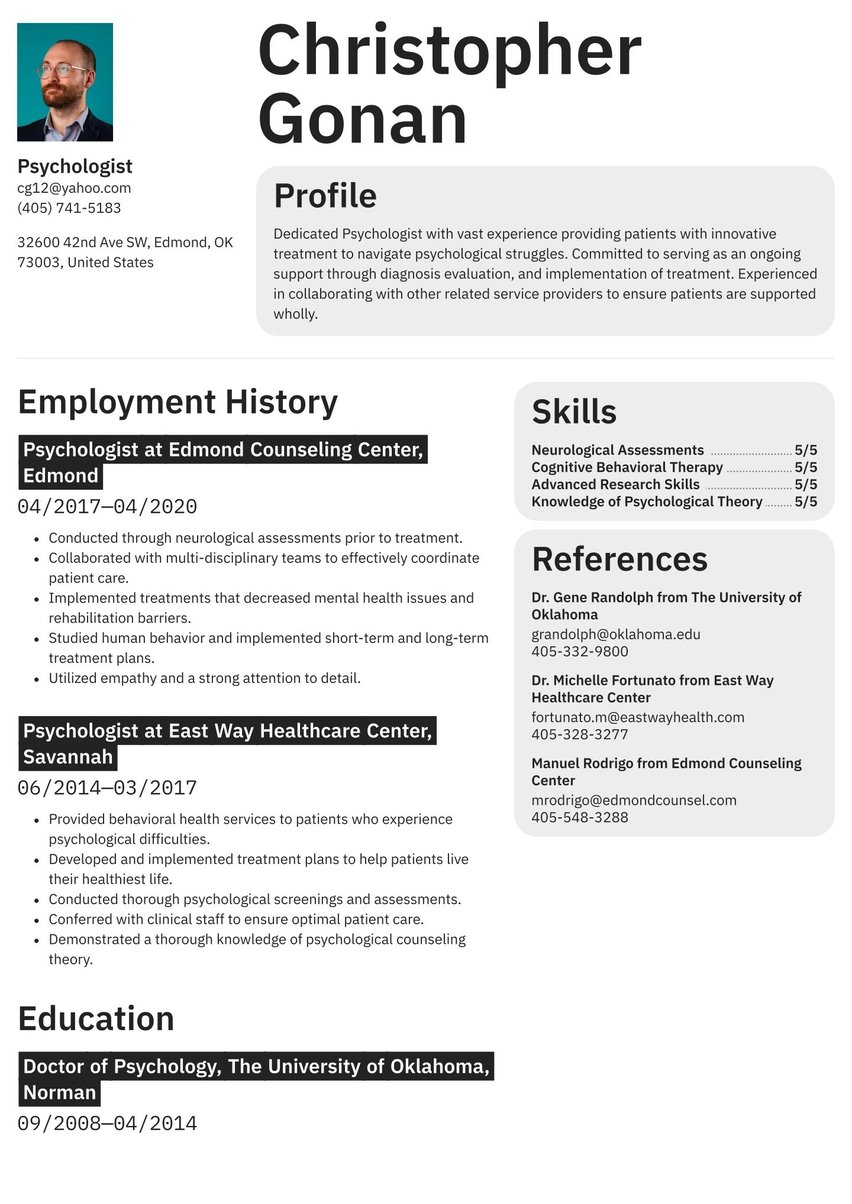Passionate and experienced Geriatric Social Worker with over five years of experience advocating for the rights and overall well-being of elderly clients. Adept in providing ongoing encouragement and support to elderly clients and their families as they navigate through life's many challenges. Bringing forth a proven track record of communicating effectively. Skilled in conflict resolution and effective counseling methods. Experienced in managing large caseloads in an efficient and organized manner.
02/2013 - 03/2020, Geriatric Social Worker, Mercy Health, New York
- Carefully assessed clients and identified problem areas that needed improvement.
- Worked with clients, families of clients, and other medical professionals to understand the needs and desires of clients.
- Identified the community resources available to clients, and communicated those resources to clients.
- Established a strong level of trust between myself and clients.
- Focused on healthy-aging lifestyle choices for patients and monitored progress carefully.
- Handled delicate cases of dementia diagnosis and treatment.
05/2009 - 12/2012, Geriatric Social Worker, Erickson Living, New York
- Provided helpful social work services to geriatric clients and families.
- Helped patients to gain access to therapeutic services and resources.
- Provided crisis intervention services as necessary to patients and families.
05/2006 - 05/2009, Master of Social Work, New York University, New York
09/2002 - 05/2006, Bachelor of Social Work, Hunter College, New York
- NASW Code of Ethics
- Mental Health Assessments
- Compassion
- Knowledge of Senior Benefits and Programs
- Crisis Intervention
- Social Welfare Policy
The most compelling the geriatric social worker resumes show off the compassion and communication skills you use to provide much-needed social services to elderly clients and their families. You’re prepared for the next step in your career and want some tips on how to get that interview.
Geriatric Social Worker resume examples by experience level
Whether your job search is focused on an entry-level position or a step up to case management or another management role, Resume.io is here to help. With our online resume builder, resume guides and resume examples for 300+ professions, you will be applying for your dream job in no time.
This resume guide, along with the corresponding resume example will cover the following topics:
- What does a geriatric social worker do?
- How to write a geriatric social worker resume
- The best format for a geriatric social worker resume
- Advice on each section of your resume (summary, work history, education, skills)
- Professional resume layout and design hints.
What does a geriatric social worker do?
Geriatric social workers are trained mental health professionals who focus on quality of life for seniors. They help aging people cope with their changing physical, emotional and cognitive needs. These specialized social workers also communicate with family and other caregivers involved with their clients.
Also called gerontology social workers, geriatric social workers assess their patients’ needs, develop treatment plans and monitor and document their patients’ behavioral trends. They may make home visits to ensure the environment is suitable.
Geriatric social workers are employed in hospitals, hospices, social work agencies, or outpatient or residential healthcare facilities.
Geriatric social worker job market and outlook
By 2040, one in five Americans will be older than 65 – that’s 40 million people. In addition, the number of people over 85 will leap by almost four times in the first four decades of the century, the Urban Institute predicts. Those demographics will lead to an increased need for services for the elderly.
Overall, the need for social workers will grow about 12%. Typical salaries range from $48,085-$56,328, with the low end starting below $40,000 and high end pay reaching more than $61,000, according to Payscale data.
How to write a geriatric social worker resume
Before we delve into writing your geriatric social worker resume, you need to know its components. Your CV should include:
- The resume header
- The resume summary (aka profile or personal statement)
- The employment history section
- The resume skills section
- The education section
Choosing the best resume format for a geriatric social worker
Since your goal is an interview, your best bet is to stick with the format recruiters like best for your geriatric social worker resume: reverse chronological order. This makes it easy for them to find your most recent position and contact information, which they typically seek first.
One of the chronological or hybrid CV formats we suggest may benefit you if you are looking to re-enter the job market after a long gap, you are trying to change careers or you have a long, varied job history.
Personalize your resume
Another reason for the reverse chronological order format is the Applicant Tracking System (ATS). This HR software is designed to scan your resume into cells that use this format.
Also be careful to individualize your geriatric social worker resume every time you apply for a new position to ensure you are presenting yourself in the best light based on the job description.This process signals to employers that you understand their requirements, but
It also helps you get past the ATS. Make sure you carefully insert keywords and phrases from the job listing into your resume. That will help you rank high enough in the ATS algorithm to get you past this hurdle.
Resume summary example
Here’s our first tip: Consider writing this section last even though it sits at the top of your resume. Why? Once you have refreshed your memory by compiling all your skills and experience, you will better be able to write a summary, which is another name for your profile. This section of about 100 words (depending on space) should point out your greatest accomplishments as a social worker and give recruiters an idea of your professional personality.
Use strong descriptive language to illustrate your style in dealing with team members, clients, and their families. If you have a specialty in crisis management or are particularly adept at dealing with Medicare and Medicaid, this is the place to brag a little. Back up your claims with solid evidence, such as a treatment plan you are proud of or details of a difficult situation you handled with grace.
As you create this section, take notes on information you would like to add, but don’t have space for. Save that for your cover letter (you can check out the templates and cover letter example guides to get a general idea of how they can complement your resume).
Passionate and experienced Geriatric Social Worker with over five years of experience advocating for the rights and overall well-being of elderly clients. Adept in providing ongoing encouragement and support to elderly clients and their families as they navigate through life's many challenges. Bringing forth a proven track record of communicating effectively. Skilled in conflict resolution and effective counseling methods. Experienced in managing large caseloads in an efficient and organized manner.
Want to see more examples? Get inspired by other helpful resumes examples from our social work category: drug and alcohol counselor resume sample, healthcare social worker resume example, case manager resume sample, social worker resume example, or medical social worker resume sample.
Employment history sample
The employment history section of your geriatric social worker resume will take up the bulk of space if you are an accomplished clinical social worker. If you are just starting out, you still have your internship and externship to list here.
Your employment history should convey your ability to effectively advocate for the needs of elderly clients who need assistance, but it should also demonstrate that you learn on the job. In other words, it should tell a story of your growth as a social worker.
Also remember that you may be applying for jobs in hospitals, community agencies, nursing homes, or other mental-health facilities. Your resume should reflect these differences; therefore, you should personalize each application for the specific job listing.
As you create your employment history section, consider each of your previous jobs. Think about them as examples of your problem-solving abilities.
Ask yourself:
- What were my responsibilities?
- How can I demonstrate them instead of listing them?
- How can I best represent what I did to improve processes?
- Did I track my caseload using Excel or another program?
- What evidence do I have to back up my accomplishments?
- Do I have data on the patient care plans I developed?
- How did I work with multidisciplinary teams to manage cases?
- What word would I use to describe my style in team meetings?
Use these questions to guide your bullet points. Avoid repeating skills or accomplishments to maximize the information you convey to hiring managers.
Geriatric Social Worker, Mercy Health, New York
February 2013 - March 2020
- Carefully assessed clients and identified problem areas that needed improvement.
- Worked with clients, families of clients, and other medical professionals to understand the needs and desires of clients.
- Identified the community resources available to clients, and communicated those resources to clients.
- Established a strong level of trust between myself and clients.
- Focused on healthy-aging lifestyle choices for patients and monitored progress carefully.
- Handled delicate cases of dementia diagnosis and treatment.
Geriatric Social Worker, Erickson Living, New York
May 2009 - December 2012
- Provided helpful social work services to geriatric clients and families.
- Helped patients to gain access to therapeutic services and resources.
- Provided crisis intervention services as necessary to patients and families.
Resume education example
Geriatric social workers must have at least a bachelor’s degree in social work or gerontology. Most states require an MSW (master’s in social work) to become licensed. Social workers may also choose to earn specialty certification through the National Association of Social Workers (NASW).
You should list all your degrees and certifications here. If you have earned any honors or distinctions, you may note them here or create a separate Accolades section. If you hold a degree higher than a bachelor's, you may leave out your high school. experience.
Master of Social Work, New York University, New York
May 2006 - May 2009
Bachelor of Social Work, Hunter College, New York
September 2002 - May 2006
Skills Section Example
This section gives recruiters a quick way to scan your skills. It also tells them what you think is most important, so make sure you curate a list that speaks to your abilities and the specific job requirements. Create a balance of soft skills and hard skills as you develop this section, but be specific. Don’t rely on buzzwords!
Brainstorm a “Master List” of all your skills and attributes. You can add to it as your career grows. You can also use it to easily personalize this section by cherry-picking based on the job listing.
As a social worker, you have excellent people skills. You know how to communicate with clients, families, and interdisciplinary teams of care workers to ensure your clients get what they need. Those people skills are key, but you must also demonstrate organizational skills, especially if you are applying for a position as a case manager. In addition, you need hard skills, or the specific abilities you need for your job. Make sure recruiters know you have extensive knowledge of social welfare policy, geriatric resources and programs, and an understanding of human behavior and sociology.
- NASW Code of Ethics
- Mental Health Assessments
- Compassion
- Knowledge of Senior Benefits and Programs
- Crisis Intervention
- Social Welfare Policy
Resume layout and design
We all know first impressions count. You are assessing a new patient the second you see them. You want hiring managers to pay attention to your candidacy, so make sure your resume looks as good as it sounds.
The most important idea here is to keep it legible. Recruiters want to be able to find key information such as your contact information, job titles, and section headings in a quick glance. If you make it difficult, they may be on to the next resume in seconds.
Here are a few more tips for your resume layout:
- If you want to add a personal flourish, do it in your header or as a highlight for your skills section, but keep it subdued by using only one color or keeping your fonts easy to read.
- Make sure your section headings stand out.
- Keep your margins neat and at least half an inch around.
Our final words of advice: Use a dedicated online resume builder such as ours to avoid any potential formatting errors and get a friend to proofread before you send. While typos may not prevent you from getting an interview, why take a chance?
Geriatric Social Worker text-only resume example
Profile
Passionate and experienced Geriatric Social Worker with over five years of experience advocating for the rights and overall well-being of elderly clients. Adept in providing ongoing encouragement and support to elderly clients and their families as they navigate through life's many challenges. Bringing forth a proven track record of communicating effectively. Skilled in conflict resolution and effective counseling methods. Experienced in managing large caseloads in an efficient and organized manner.
Employment history
Geriatric Social Worker, Mercy Health, New York
February 2013 - March 2020
- Carefully assessed clients and identified problem areas that needed improvement.
- Worked with clients, families of clients, and other medical professionals to understand the needs and desires of clients.
- Identified the community resources available to clients, and communicated those resources to clients.
- Established a strong level of trust between myself and clients.
- Focused on healthy-aging lifestyle choices for patients and monitored progress carefully.
- Handled delicate cases of dementia diagnosis and treatment.
Geriatric Social Worker, Erickson Living, New York
May 2009 - December 2012
- Provided helpful social work services to geriatric clients and families.
- Helped patients to gain access to therapeutic services and resources.
- Provided crisis intervention services as necessary to patients and families.
Skills
- NASW Code of Ethics
- Mental Health Assessments
- Compassion
- Knowledge of Senior Benefits and Programs
- Crisis Intervention
- Social Welfare Policy
Education
Master of Social Work, New York University, New York
May 2006 - May 2009
Bachelor of Social Work, Hunter College, New York
September 2002 - May 2006
Key takeaways for a geriatric social worker resume
- An aging population will only increase the demand for elderly services such as geriatric social work.
- Use your summary to show your compassion and communication style.
- Highlight health knowledge as well as your ability to manage your caseload.
- Take advantage of our online resume builder to take the pain out of formatting and get your geriatric social worker resume into the hands of hiring personnel faster.


.jpg)

.jpg)









